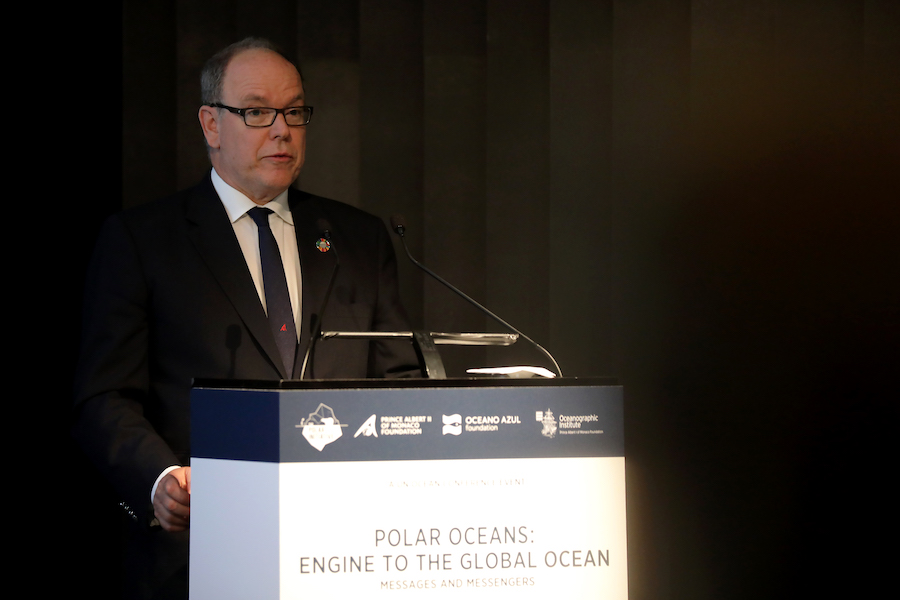Alongside the UN Ocean Conference in Lisbon, Prince Albert has made a call to action, asking around 100 high-level guests to lend their voices to the plight of the polar regions and support the Two Poles, a Common Future initiative.
The Prince Albert-led talk, Polar Oceans: Driving Force of the Global Ocean, at the United Nations Ocean Conference, held from 28th June to 1st July in Lisbon, drew over a hundred high-level guests to hear about the current situation in the polar regions.
Held by the Prince Albert II of Monaco Foundation, alongside the Oceanographic Institute and the Océano Azul Foundation, a panel of scientists, polar experts and artists came together to discuss the importance of the polar oceans as “vectors of global ocean and climate change, but also the need to contribute to better hear the messages of scientists.”
In his opening speech, Prince Albert said that, “the Poles constitute an essential link in the oceanic system (…) both as regards to oceanic balances, those of species, currents and major planetary fluxes, as well as with regard to the preservation of the climate. For my part, I would like to underline the extent to which this role is also political, as the Poles concentrate, like a laboratory, most of the questions that we face when it comes to acting for the oceans.”
He went on to explain that there are solutions, saying the “prospects for solutions, in particular through a certain number of lines of work whose effectiveness we know” are in sight.
The first session, moderated by Dr Renuka Badhe, Executive Secretary of the European Polar Board, recalled the importance of the Arctic and Southern Oceans on a global scale, but also underscored the need for collaborative and inclusive work. Teacher Michael Meredith, oceanographer and science leader at the British Antarctic Survey, said that there is only one ocean and it provides connectivity on a planetary scale. However, the circulation of ocean currents is already changing and will continue to change in the future with repercussions both on our climate and on ecosystems and global populations. Unfortunately, our current ability to predict the timing and magnitude of these changes in the Poles is still limited, which hampers the implementation of efficient climate policies.

Initiating the Polar Ocean Action Plans as part of the UN Decade of Ocean Science is an important step, said Dr Sian Henley, Lecturer in Marine Science at the University of Edinburgh and Vice President of the Southern Ocean Observing System.
Next up, Florence Colleoni, Glaciologist and Paleoclimatologist at the National Institute of Oceanography and applied geophysics (OGS) and Richard Bellerby, Scientific Director for Climate and Oceans at the Norwegian Institute of Water Research, spoke about loss of sea ice, acidification and the effects of these two phenomena globally.
The second session moderated by Ashok Adicéam, Special Advisor to the French Ambassador for the Poles and Maritime Affairs, focused on mediation. The need to evoke emotion to convey messages about the urgency of the situation was addressed. Building stories that directly reach the hearts of audiences, they said, is a powerful way to bring about awareness and to get more active responses from the population.
The talk ended with a call to action, inviting all those assembled to mobilise and lend their voices to the plight of the polar regions. There were five specific ways suggested to do so, and were put into a single document, entitled Two Poles, a Common Future.
The points it touches on are addressing the fact that there is a problem, increasing investment in polar research, minimising pressure on the regions, building collaboration between the Arctic and Antarctic communities, and being a voice for the regions.
Photo of Prince Albert in Lisbon, credit: Sarah Del Ben
